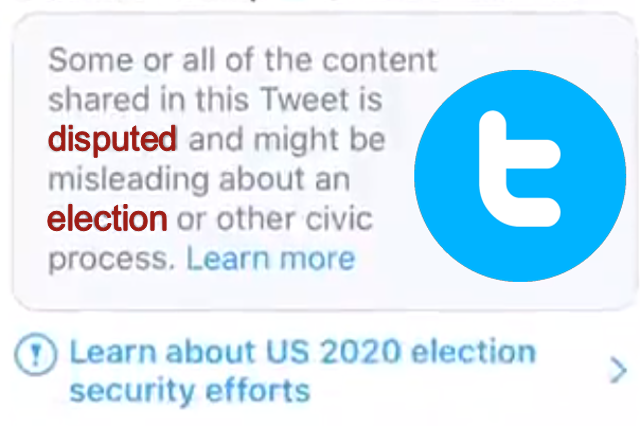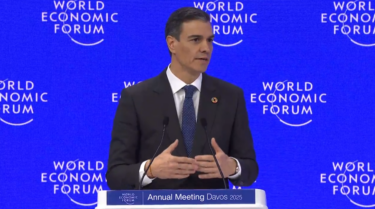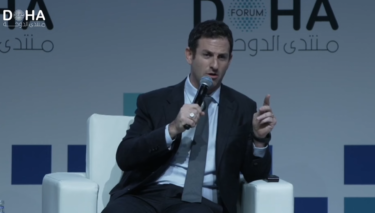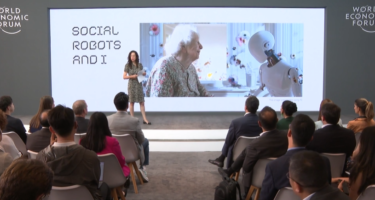If the idea behind flagging posts as “disputed” and directing users to alternative links on Twitter is really about providing more context to an issue, why then aren’t the opposing claims also listed as “disputed?”
For example, high-profile social media posts that question the integrity of the 2020 US presidential election are flagged as “disputed,” and users are provided with links that dispute the claim.
A Rigged Election! https://t.co/dAviFrkEP4
— Donald J. Trump (@realDonaldTrump) November 20, 2020
But when posts claim that this year’s election was the most secure ever, they are not flagged as “disputed,” despite the fact that election integrity is being disputed in both public discourse and in legal proceedings.
“The November 3 election was the most secure in American history” —the experts https://t.co/K0qZcewewc via @CISAgov @NASSorg @NASEDorg @EscambiaVotes
— Sam Vinograd (@sam_vinograd) November 15, 2020
“We’re simply linking to a broader conversation, so that people have more information” — Jack Dorsey
When Senator Ted Cruz asked Twitter CEO Jack Dorsey why Twitter was “putting purported warnings on virtually any statement about voter fraud,” during the November 17 big tech hearing before the Senate Judiciary Committee, Dorsey testified:
“We’re simply linking to a broader conversation, so that people have more information.”
.@tedcruz grills Twitter CEO Jack Dorsey on putting labels on tweets about voting integrityhttps://t.co/BNn8K45Jbt pic.twitter.com/bV2lO1F2hT
— RNC Research (@RNCResearch) November 17, 2020
If what Dorsey said were true, then Tweets from both sides of the argument would equally be flagged as “disputed.”
When something is disputed, it stands to reason that the dispute must have more than one side. Otherwise, it wouldn’t be a dispute now, would it?
Therefore, it makes no logical sense for big tech companies to declare a phrase like — “the election is rigged” — to be flagged as disputed, but not apply the same reasoning to the counterargument — “the election is not rigged” — unless there were other motivating factors involved.
“We will label or remove false or misleading information intended to undermine public confidence in an election or other civic process” — Twitter Civic Integrity Policy
However, the one-way censorship makes perfect sense when you realize that Twitter had already declared that the election process itself was infallible and would censor anyone who would “undermine public confidence in an election” as a matter of policy before the election.
Twitter’s policy on misleading information about outcomes:
We will label or remove false or misleading information intended to undermine public confidence in an election or other civic process. This includes but is not limited to:
- disputed claims that could undermine faith in the process itself, such as unverified information about election rigging, ballot tampering, vote tallying, or certification of election results; and
- misleading claims about the results or outcome of a civic process which calls for or could lead to interference with the implementation of the results of the process, e.g. claiming victory before election results have been certified, inciting unlawful conduct to prevent the procedural or practical implementation of election results (note that our violent threats policy may also be relevant for threats not covered by this policy).
Twitter’s Civic Integrity policy is founded on the principle of not undermining “faith in the process,” and as such, it will label any evidence to the contrary as being disputed.
“Linking to a broader conversation” actually means ignoring the broader conservation when held up to a mirror in Twitter’s case.
Big tech gatekeepers of information
But the truth behind the election rigging controversy is irrelevant to the bigger picture — that’s just one example to highlight a point — which is that big tech controls the flow of information, and it will steer its users in any direction that it wants for its own purposes.
If it were really about giving context to a broader conversation, then why don’t we see claims that the earth is round being disputed by flat earth believers?
Is the topic not dangerous enough, or is it because it was allowed to be held up to public scrutiny, and people have already made up their own minds on what to believe, so the fact checkers got a free pass on this one?
You can’t have an educated public engaged in civil discourse when disputed issues are unevenly policed by the gatekeepers of today’s digital public forums
By the same token, if the claim that the election was rigged were said to be as credible as the idea that the earth is flat, why wouldn’t everyone be allowed to see the evidence and arrive at their own conclusions by themselves?
Wouldn’t sunlight be the best disinfectant?
With the immense data they collect and the information they selectively disseminate, big tech companies have become more powerful than governments.
You can’t have an educated public engaged in civil discourse when disputed issues are unevenly policed by the gatekeepers of today’s digital public forums.
And that’s where big tech’s power lies — far beyond the squabbling of right versus left.
Big tech’s power lies beyond liberal vs conservative squabbling
It’s a battle between technocrats and the citizens of free nations for access to information.
Big tech may appear to currently favor one side of the political spectrum over another now, but it has no loyalty, obligation, or responsibility to any political ideology, and it can choose to play both sides whenever it pleases.
As long as the big tech companies are given unchecked powers, they will be loyal to only those who are in the club
Liberals can be outraged all they want at big tech companies for not taking down enough harmful “misinformation,” and conservatives can cry and moan every time they feel their values are being censored, but big tech companies will continue to operate on a whole other level, far away from the partisan bickering.
Google, Facebook, and Twitter profit from the polarization they amplify. They provide fuel to political uprisings, and they possess the ability to influence elections.
As long as the big tech companies are given unchecked powers, they will be loyal to only those who are in the club, which consists of their industry peers, un-elected bureaucrats who wish to overthrow the world order, and members of the intelligence community .
When big tech aligns with the ‘great reset’ — left vs right doesn’t matter — you won’t have a voice
By only showing context to disputed claims that flows in one direction, big tech has chosen its side, for the time being.
The major players have already partnered with the World Economic Forum, and its allies like the World Health Organization, and many have openly embraced the technocratic “great reset” of society and the world economy.
When Facebook, Twitter, and Google align their content moderation policies with the recommendations of un-elected bureaucrats fully indoctrinated with an ideology that only works with a global crisis to exploit, it won’t matter if you’re a liberal, a conservative, or a moderate.
It will be too late.
Sooner or later that censorship pendulum is going to swing in the other direction with an equal and opposing vengeance to the one that set it in motion in the first place
There will be no room for your opinion after the proposed “great reset” turns your body into a tracking device disguised as your digital identity and you are living under the authority of the envisioned “citizen-centered welfare state.”
In the left versus right charade is being played out on big tech platforms, you may be on the side that appears to be winning now, or not.
But sooner or later that censorship pendulum is going to swing in the other direction with an equal and opposing vengeance to the one that set it in motion in the first place, and there’s no guarantee that whatever liberties are lost along the way will ever be found again.
Tech products, culture are ‘designed intentionally for mass deception’: Ex-google ethicist testifies
A timeline of the great reset agenda: from foundation to Event 201 and the pandemic of 2020
Your digital identity can be used against you in the event of a great reset












